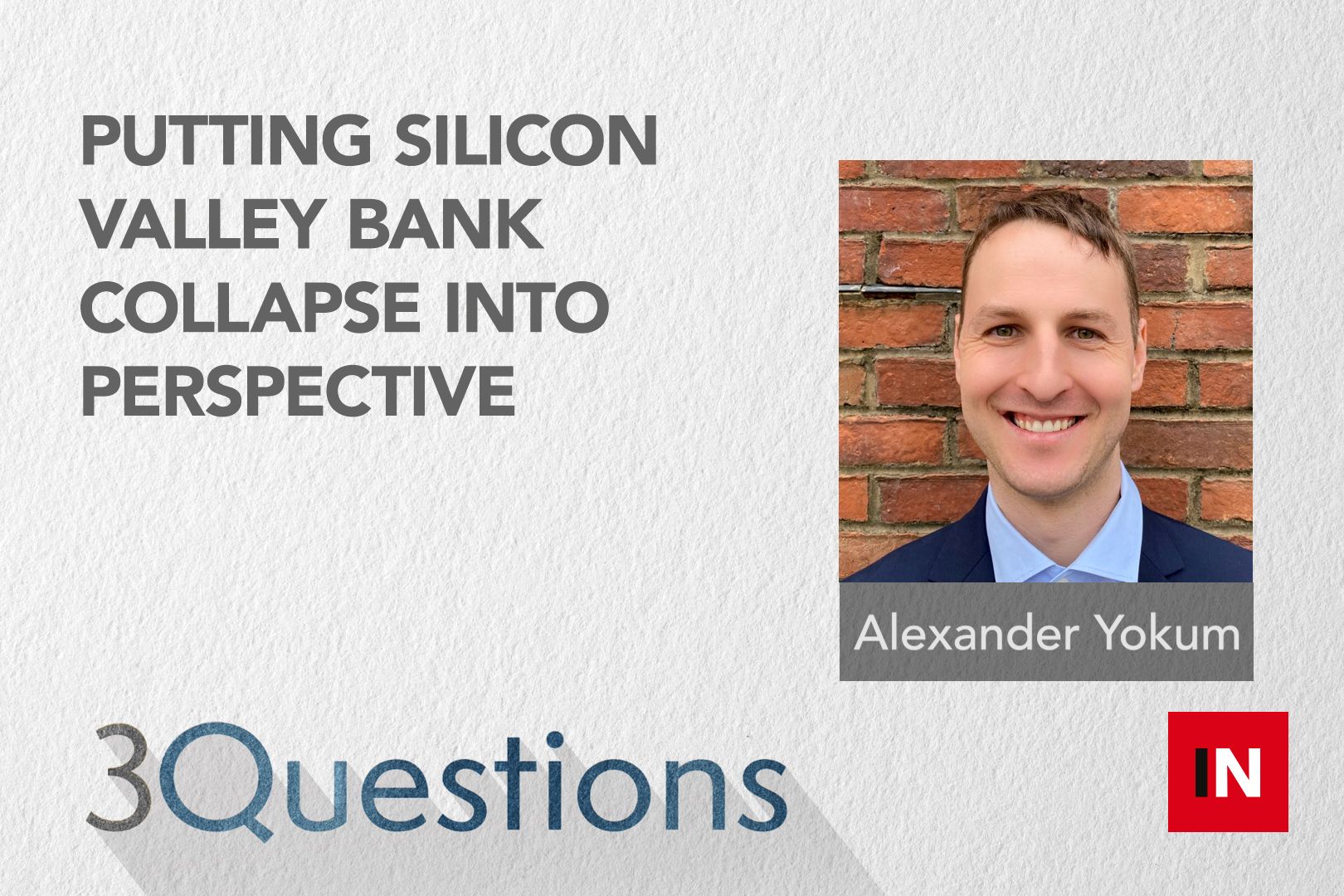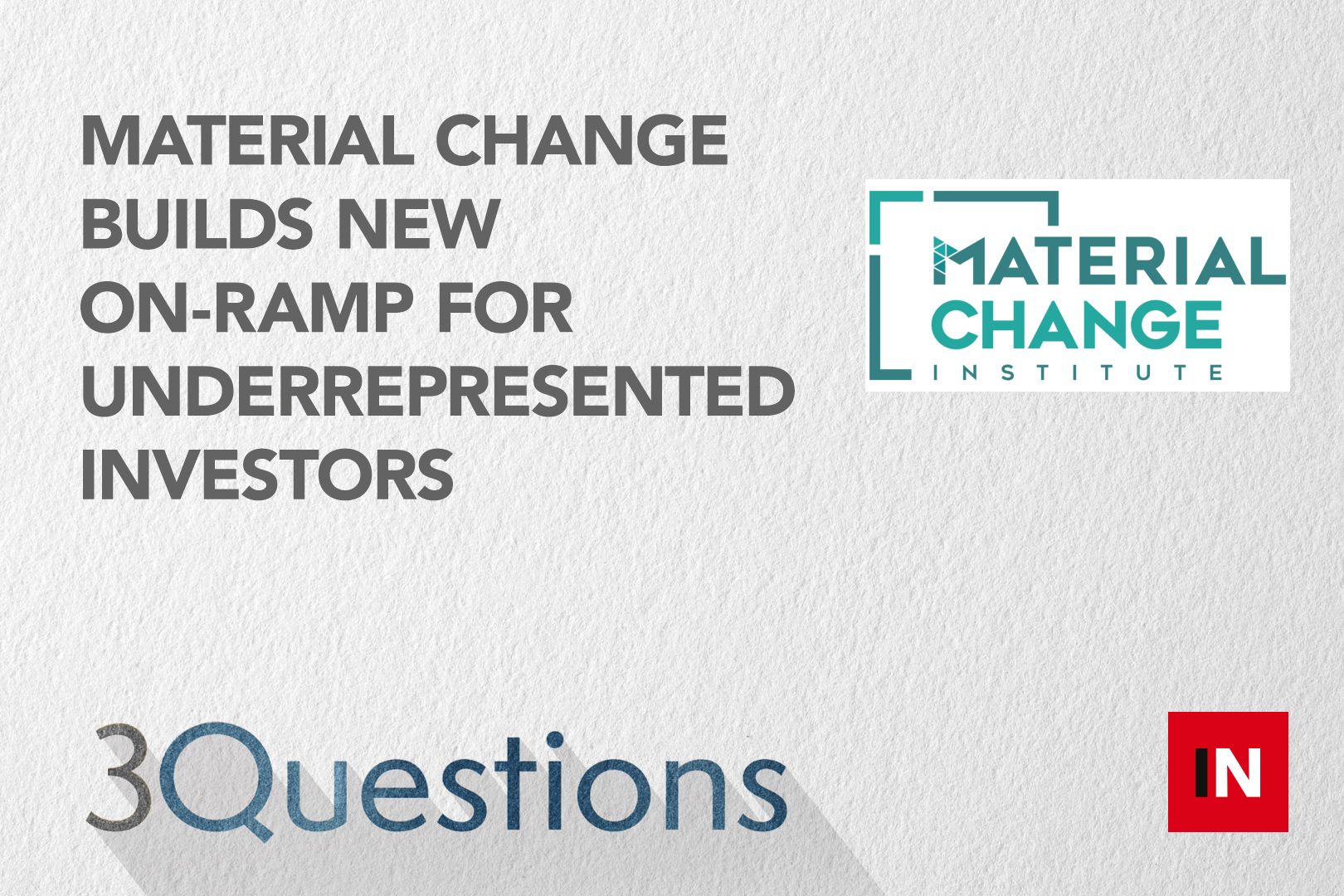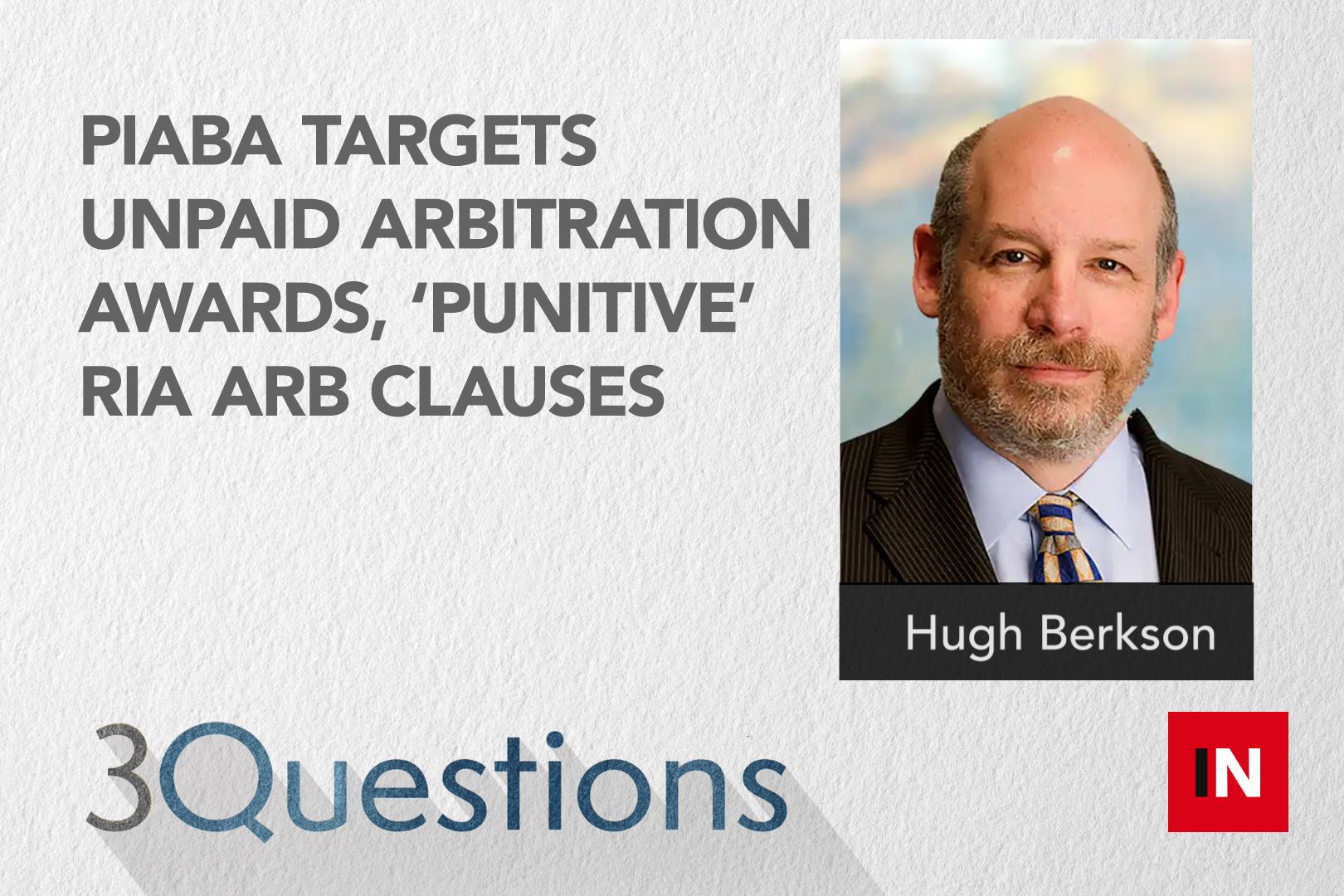Companies need to incorporate ESG because stakeholder capitalism is key
To attract investors in 2022, demonstrate commitment to seek long-term value and take all stakeholders and society at large into account, said Sarah Green-Vieux, Kindred’s chief impact officer.
Liz Skinner [00:00:09] Welcome to Three Questions. I’m Liz Skinner with InvestmentNews, and with me today is Sarah Green-Vieux, the chief impact officer at Kindred, a membership organization that prepares leaders for socially responsible business. Thanks for joining us today, Sarah.
Sarah Green Vieux [00:00:25] Thank you for having me.
Liz Skinner [00:00:27] Sarah tell us how companies can pivot their internal operations to ensure that they are upholding ESG standards and are able to attract investors.
Sarah Green Vieux [00:00:40] Thank you for that. And it feels like there might be two questions within that question. So I think the first part is what do companies need to do in order to attract investors. And so there has been a push towards ESG and DNI disclosure. SEC is about to set mandates there, and there are established reporting frameworks, so companies use those standards disclose. And then the second thing that companies can do to attract investors is an external validation of efforts so their rankings and ESG indices and funds. So ensuring that you are included in those funds and rankings and ranked highly are things that will attract investors. And then in terms of actions that companies can take to pivot their organizations and their internal operations. I think we need to take a step back and first state that stakeholder capitalism is now the name of the game, and this means a complete remapping of our corporate value system. This means that you are supporting your stakeholders and that that must be at the core of your business model. And so ESG can no longer be a separate strategy. And then when you look at each stakeholder, you have to assess your policies and performance. Are you paying your employees well enough that one medical bill won’t throw them into bankruptcy? Henry Ford famously increased his staff’s pay and gave them time off so that they could afford the cars they were making and had time to go buy them. And so when you think about what you need to do in order to support your employees, higher wages, benefits, time off, paid sick leave. Those are ways that you can support your workers in that stakeholder. And then you need to look at all of your other stakeholders. So what kind of policies do you have to support communities that have been marginalized? Do you have a second chance policy? Do you have a diverse recruitment pipeline? What systems do you have in place to retain employees of color? And then you have to move over to customers. Are your products designed for a diverse customer base? When you look at the environment and are your environmental goals aligned with the goals set out by the U.N., are they more ambitious or more baseline? And so after having done all of that thought exercise of looking through all of your stakeholders, you kind of need to to think back. And I think to wrap it up in order to attract investors in 2021 2022, you need to prove that one, you understand how the expectations have shifted. Two, demonstrate that you are deeply committed to creating value for all stakeholders, and three know how to talk about your work in an objective way.
Liz Skinner [00:03:31] Certainly, the ESG investing landscape has changed in recent years. What do you foresee to be some of the investing trends that we’re going to see with regards to ESG in 2022?
Sarah Green Vieux [00:03:44] I think that there are several 2020 to ESG trends that I can kind of lean. One, there’s going to be a doubling down on climate. Two, there is going to be a doubling down on DNI and in social justice more broadly. Three, folks are going to be looking at human rights across the value chain. There’s a lot happening in Europe regarding mandatory due diligence and there is a lot happening and a lot of protests in response to weaker treatment in China. And so I think I also have to kind of take a step back. And prior to the pandemic, investors were really ramping up their assets on environmental disclosures. And then the pandemic hit and then the murders of George Floyd and Breonna Taylor. And we witnessed a major societal shift. Folks were on the street and online demanding more from companies. And so we noticed that investors picked up on those demands, and I see that trend continuing in 2022. And so I don’t necessarily know for sure what investors will be leaning into. But what I do know is that the public will in fact be setting that agenda with investors following suit.
Liz Skinner [00:04:56] Let’s look for just a moment at kind of the past five years. And in one work that year you’ve been doing. How have you seen over the over the past five years the need for CEOs to care about all things ESG?
Sarah Green Vieux [00:05:19] I think I’m I’m really glad that you gave that five year window because I think that it allows us to do a pre-pandemic pandemic, George Floyd and Breonna Taylor, and so there’s been a significant evolution there. Pre-pandemic, you had Larry Fink writing letters saying, I want to see your environmental policies, I want you to be doing more. There is a climate crisis. And so there was definitely there was definitely a push there. And then the pandemic hit, and that’s when we all of a sudden realized that frontline workers were at the core of our economy and they were being put at risk. They didn’t have paid sick leave. They didn’t have the support in terms of family leave and time off or if they weren’t paid enough to be putting themselves in the line of danger. And so all of the sudden investors and the public were asking for more from their CEOs and and interestingly, Edelman has identified that 68 percent of the public is is asking for CEOs to be stepping in where the government is not and fixing major societal issues. And so when you have a pandemic, when you have social justice that is coming to the forefront and inequity is being laid bare. Now we’re we’re asking CEOs to have a an opinion on on social justice movement, and they have to have a strategy that doesn’t just look at disclosure. But really the actions to be dismantling inequity. And so in moving forward this, this is only going to get stronger and we’re seeing that there is more pressure with regards to the workforce as well and pay and what is a good pay. And how is that necessary in order for our economy to recover?
Liz Skinner [00:07:20] Very good. Sarah Green Vieux, thank you so much for joining us and sharing these ideas with us.
Sarah Green Vieux [00:07:25] Thank you so much for your time. It was great chatting with you today.



